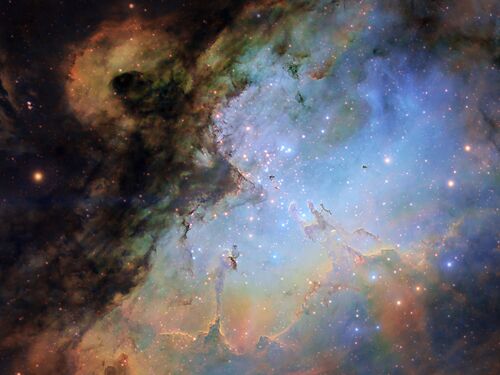Completed
The most recent decadal survey in Earth Science and Applications from Space (released in early 2018) identified key science questions and prioritized observational needs to advance U.S. efforts in Earth science and support critical applications such as climate modeling and weather prediction. At the request of NASA, this midterm assessment evaluates progress toward decadal survey goals.The report identifies potential strategies for managing the NASA Earth Science Division (ESD) portfolio, recommends ways to maintain programmatic balance and improve alignment with decadal survey priorities, and discusses how to prepare for the next decadal survey.
Featured publication
Consensus
·2024
In 2018, the National Academies released Thriving on Our Changing Planet: A Decadal Strategy for Earth Observation from Space. The decadal survey identified key science questions and prioritized observational needs to advance U.S. efforts in Earth science and support critical applications such as c...
View details
Description
The National Academies of Sciences, Engineering, and Medicine (NASEM) shall convene an ad hoc committee to review the responses from NASA, NOAA, and the USGS earth observations programs to the 2017 decadal survey, “Thriving on Our Changing Planet: A Decadal Strategy for Earth Observation from Space.” The committee’s review will include the following tasks:
- Highlight the most significant scientific discoveries, technical advances, and relevant programmatic changes in Earth science and applications over the years since the publication of the decadal survey. Describe any significant changes in the scientific and operating environment specifically related to Earth Observations that should be considered as NASA, NOAA and the USGS move forward in implementing the decadal survey.
- Assess the degree to which the programs of NASA, NOAA and the USGS address the strategies, goals, and priorities outlined in the 2017 decadal survey and other relevant National Academies reports, including the impact of legislative or national policy directives.
- Assess the progress toward realizing these strategies, goals and priorities.
- Assess and provide guidance on impact and effectiveness of Earth science programs (including research, applications, data systems and technology) in implementing the decadal survey recommendations, synergies, and portfolio balance.
- Recommend actions that could be taken to optimize the full breadth of NASA's Earth science programs during the remaining decadal interval. Consider current and forecasted resources, progress on decadal missions, coordination with entities external to NASA including other agencies, international partners, and science and technology advances from the study groups examining implementation of the survey-recommended "targeted observables".
- Recommend any actions that NASA, NOAA and the USGS should undertake to prepare for the next decadal survey, including information, observables, pathfinders, or technology.
- Comment on NASA efforts since the last survey to enhance the vitality and diversity of the scientists and engineers who work on programs sponsored by NASA Earth Science Division (ESD) and recommend actions that might be taken to enhance progress in these areas.
In conducting these tasks, the committee shall not revisit or redefine the scientific priorities or recommended targeted observables, unless indicated by superseding legislative or national policy directives.
Contributors
Committee
Co-Chair
Co-Chair
Member
Member
Member
Member
Member
Member
Member
Member
Member
Member
Member
Member
Committee Membership Roster Comments
Sponsors
NASA
Staff
Tarini Konchady
Lead
Art Charo
Lead
Dwayne Day
Lead
Linda Walker
Major units and sub-units
Center for Advancing Science and Technology
Lead
Aeronautics, Space, and Astronomy Program Area
Lead
More like this
Discover
Events
Right Now & Next Up
Stay in the loop with can’t-miss sessions, live events, and activities happening over the next two days.
NAS Building Guided Tours Available!
Participate in a one-hour guided tour of the historic National Academy of Sciences building, highlighting its distinctive architecture, renowned artwork, and the intersection of art, science, and culture.
